Shell shares up as it confirms 10,000 job cuts and falling profits
- Published
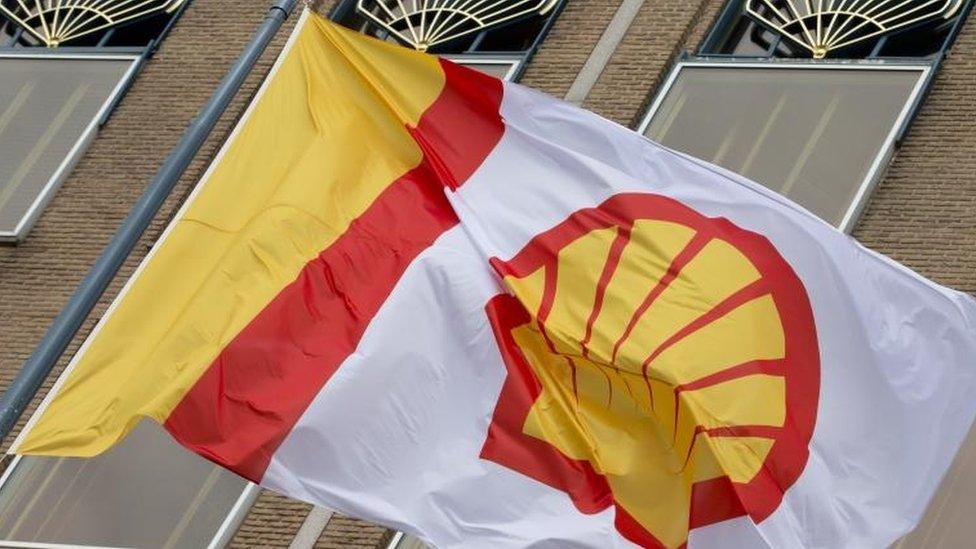
Royal Dutch Shell shares rose after it confirmed it would cut 10,000 jobs and a sharp fall in annual profits.
Shell extended gains to 7% as it said it made $1.8bn (£1.23bn) for the fourth quarter, compared with a $4.2bn profit for the same period the year before.
Full-year earnings, external have seen their steepest fall in 13 years, from $19bn in 2014 to $3.8bn last year.
Oil prices have fallen steadily, from more than $100 a barrel 18 months ago to around $30 a barrel now.
Nevertheless, Shell has maintained its dividend payout to shareholders, a move that relieved investors.
Shares closed up 6% at 1525.50p.
Oil companies and their suppliers have been cutting back hard on investment and jobs as the low price eats into profits and makes investment less worthwhile.
Shell's arch-rival, BP, announced an underlying replacement (current) cost profits slump of 51% to $5.9bn for 2015 and a further 3,000 job cuts earlier this week.
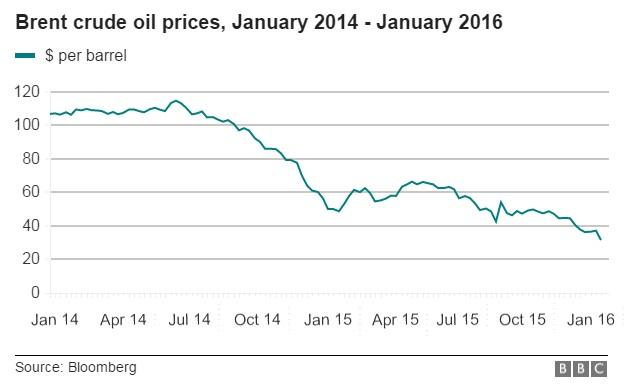
'New chapter'
Shell had already made clear when investors were preparing to vote on its planned takeover of BG that its profit figures for 2015 would be hit.
It also said thousands of job would go, because of its takeover of BG.
Royal Dutch Shell's chief executive, Ben van Beurden, said the company was entering a new phase: "The completion of the BG transaction, which we are expecting in a matter of weeks, marks the start of a new chapter in Shell, rejuvenating the company and improving shareholder returns.
"We are making substantial changes in the company... as we refocus Shell, and respond to lower oil prices. As we have previously indicated, this will include a reduction of some 10,000 staff and direct contractor positions in 2015-16 across both companies."
He added he would take further action if necessary: "Shell will take further impactful decisions to manage through the oil price downturn, should conditions warrant that."

Analysis: John Moylan, industry correspondent
Shell's share price rose today. But it has been falling steadily over the past 18 months as oil prices have tumbled.
But that doesn't tell the whole story. 2015 has been a defining year for the Anglo Dutch firm.
The takeover of BG Group will make it second only to Exxon amongst the global oil/gas giants. But it is also having to adapt fast to the low oil price world - so it is cutting investment by cancelling or postponing projects and slashing costs.
And there's more pain to come. Around 2,800 jobs are going as a direct result of the Shell/BG deal. The bulk will likely be here in UK, Australia and the US where both firms have hubs and duplicated activities.

Some analysts question whether Shell can continue to keep paying investors at the rate it does on the back of a shrinking business.
Laith Khalaf from stockbrokers Hargreaves Lansdown said Shell, whose roots are half Dutch, half British, was famous for its dividend record: "Half of Holland would keel over in apoplectic horror if Shell ever cut the payout.
"The company is so far making good on its commitment to hold the dividend, but based on the current price that would amount to a 2016 yield of almost 9%. That suggests there is a high degree of scepticism in the market that Shell can continue to defy gravity for the remainder of the year."
Cuts and plans
'It takes time for supply to stabilise', says Lord Browne
At the time of the proposed BG tie-up, oil was trading at about $55 a barrel, but it is currently trading at about $35 a barrel, leading some shareholders to oppose the plan.
Standard Life, a key investor in Royal Dutch Shell, said last month that the price of oil needed to be $60 a barrel for the takeover to make financial sense, but last month, the majority of shareholders in Shell, which is Europe's largest oil company, voted in favour of that deal.
Shell said it had cut operating costs over the year by $4bn, or around 10%, and expected to cut costs by a further $3bn this year.
The company also cut back hard on investment over the year, with capital spending slashed by $8.4bn from a year ago to $28.9bn.
Shell sold $5.5bn worth of assets in the course of 2015 and is planning to sell another $30bn of assets.
Shell's results are calculated on the basis of replacement cost, which reflects the current cost of supplies and is widely seen as the best measure of an oil firm's underlying performance. The profit figures stated above include one-off items.
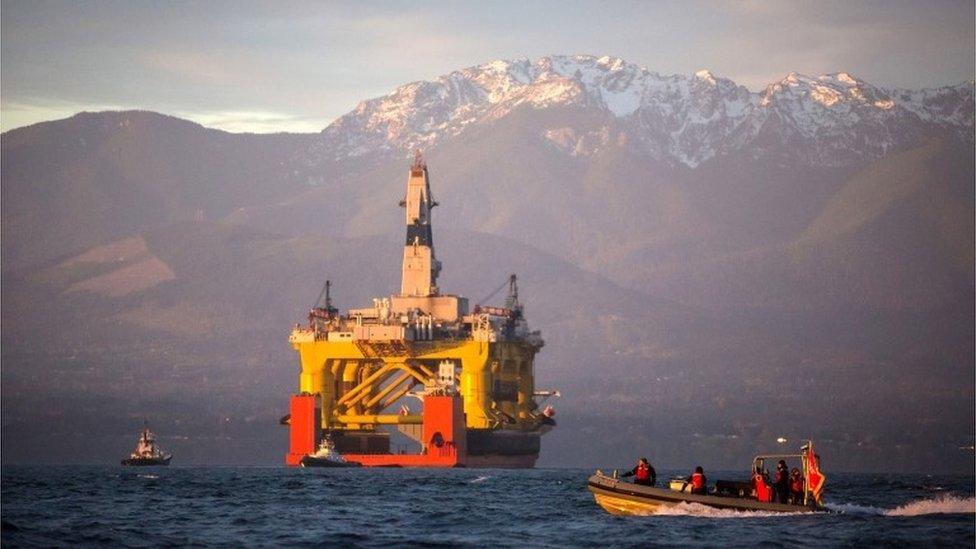
Oil price falls
The drop in the price of oil has been driven by oversupply, driven by US shale oil flooding the market, Opec flooding the market to try to put these new producers out of business and increased production from Russia which is desperate to boost foreign income as its economy suffers from sanctions imposed after Russia annexed Crimea two years ago.
At the same time, demand has fallen because of a slowdown in economic growth in China and Europe.
The world's energy watchdog warned recently that the market could "drown in oversupply".
The International Energy Agency, which advises countries on energy policy, said it expected the global glut to last until at least late 2016.
The most recent worry for investors is the lifting of Western sanctions on Iran which could worsen the existing oversupply problem, with the country's deputy oil minister, Roknoddin Javadi, predicting it can produce an extra 500,000 barrels per day.
- Published4 February 2016
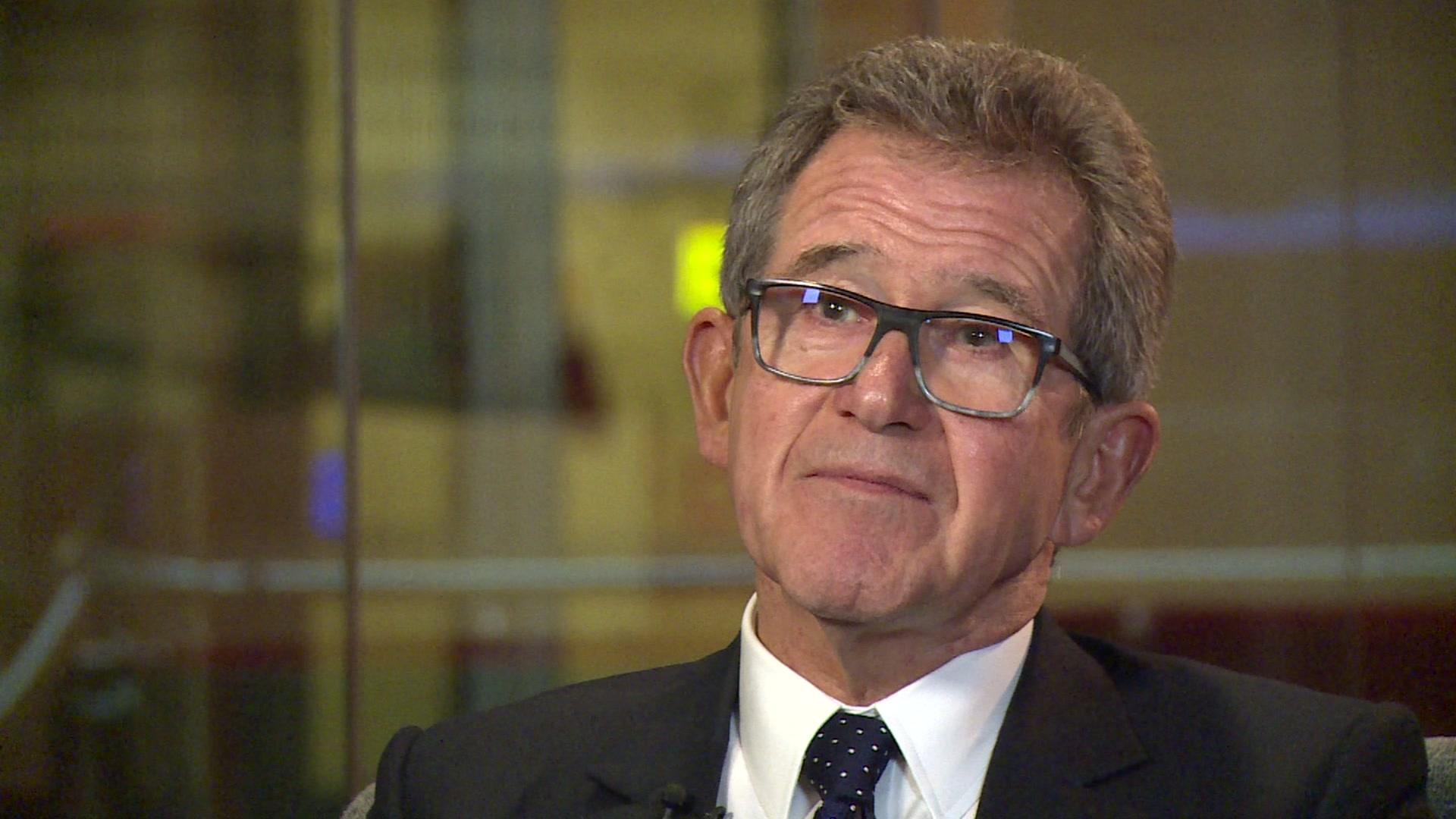
- Published2 February 2016
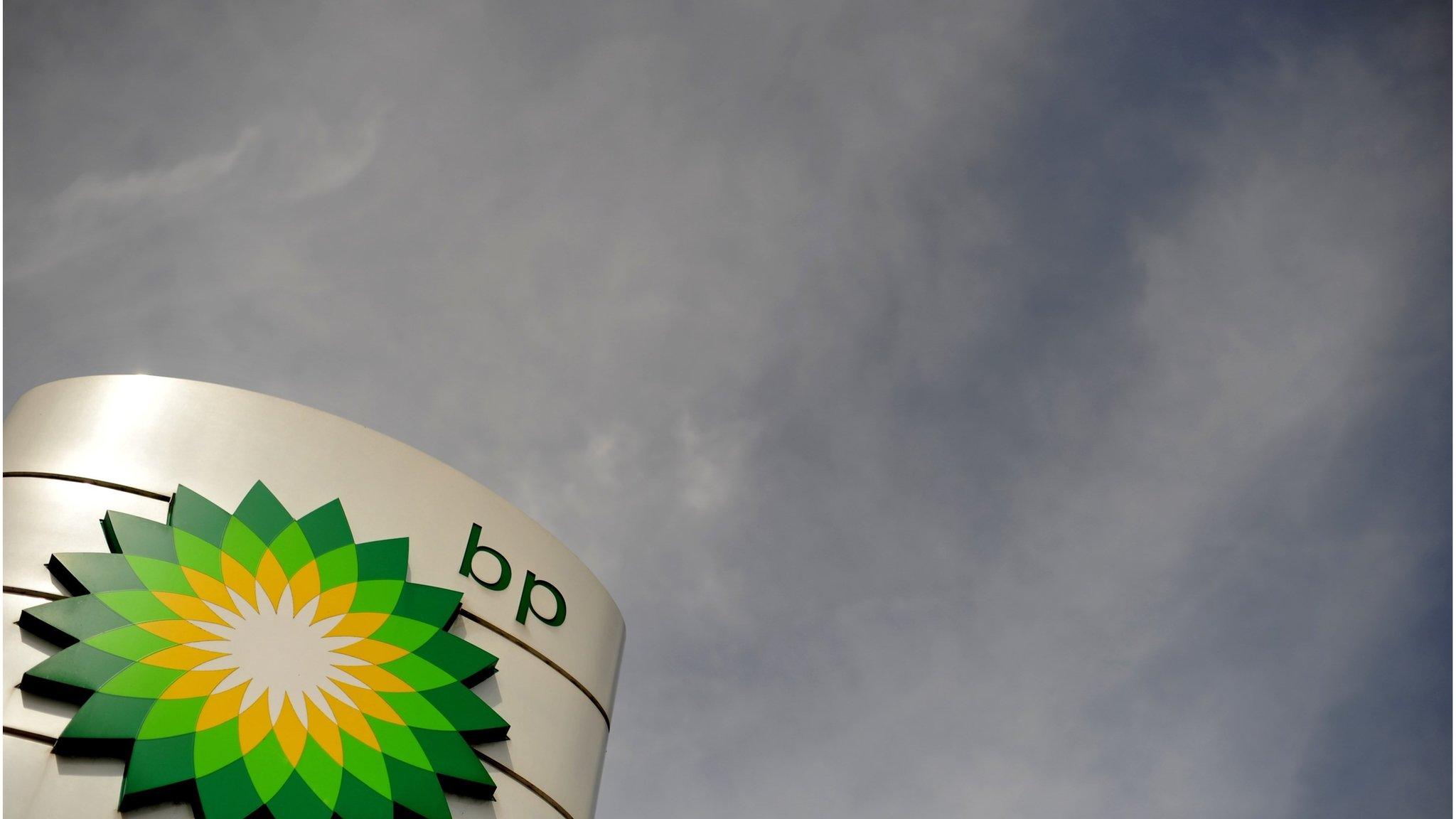
- Published27 January 2016
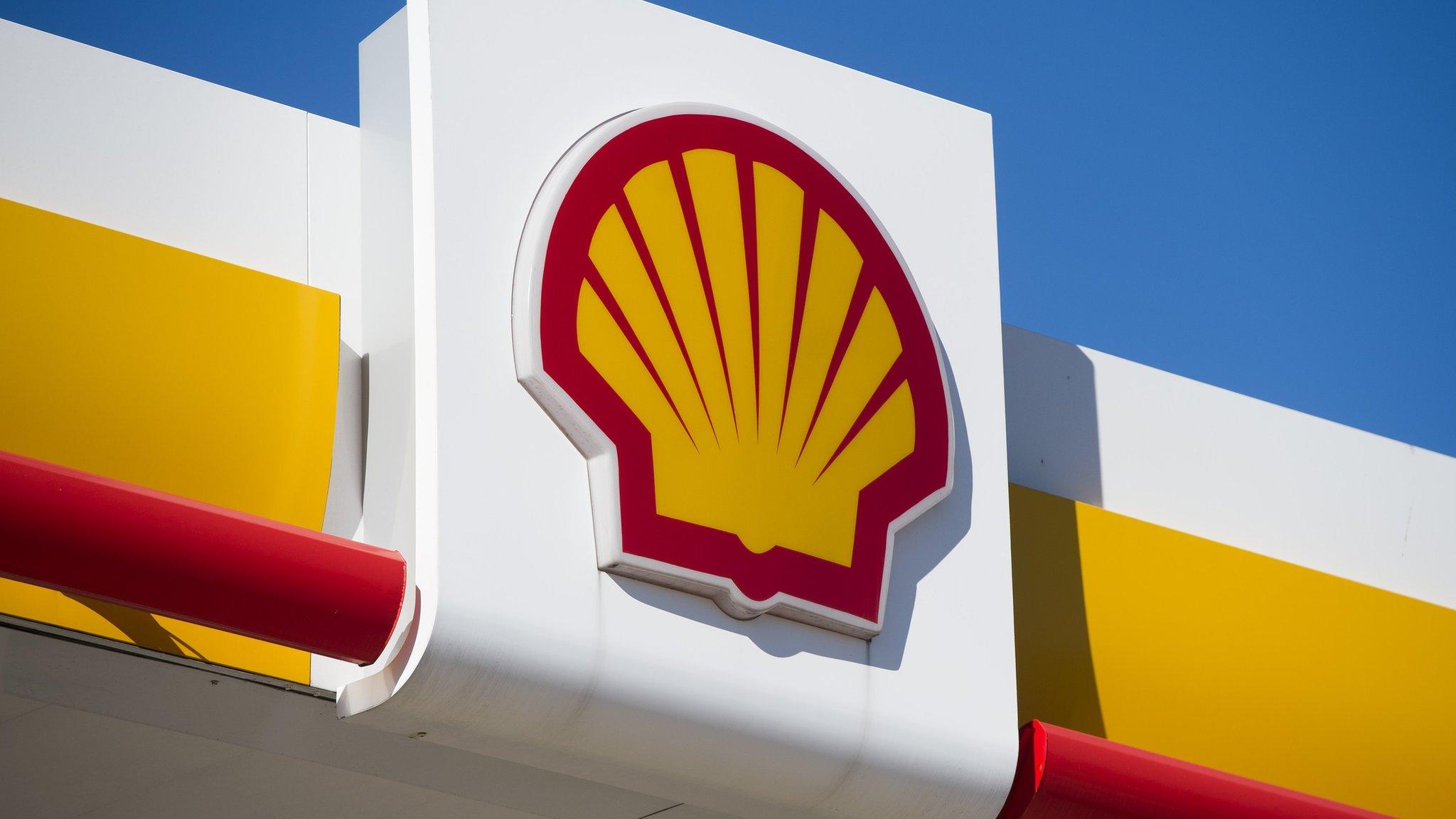
- Published11 January 2016
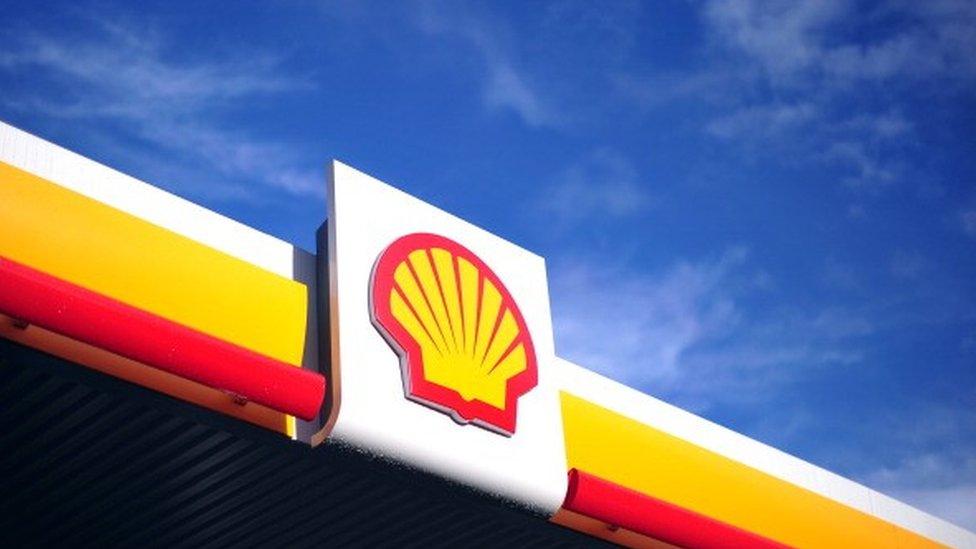
- Published14 December 2015

- Published28 September 2015